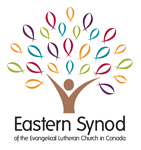Dear People of God,
We are all created in the image of God.
When we can recognize our equal humanity and worth our attitudes and behaviours are motivated by compassion and the common good. The disheartening aspect of recent reports of police violence against Indigenous Peoples is that it is neither unusual nor uncommon. We are quick to respond with disgust and anger when we see instances of racial violence and injustices, and yet as the Toronto Star’s editorial board writes, “Let’s save some outrage for treatment of Indigenous people.”¹
In response to the racial violence in Minneapolis, Ontario Regional Chief RoseAnne Archibald writes,
“Indigenous Elders have said, this coronavirus has come for a reason, it has come to teach us something. One thing is obvious; this pandemic has reminded us of our shared humanity. As the world experienced lockdowns, the majority of us stayed home and expressed a collective concern for our fellow humans’ health and well-being. Perhaps for the first time in our modern human experience, we understood we are truly in this together. As such, it was especially shattering to watch a fellow human killed when we were all working toward preserving health and saving lives. George Floyd became ‘everyman,’ who was experiencing real anguish, and when he cried out for his mother, we all understood.”²
It is time to build awareness and live out compassion for all. The summer solstice on June 21st marks National Indigenous Peoples Day in Canada. A day to recognize the contributions of First Nations, Inuit, and Métis peoples and cultures. We ask you to stand in solidarity with Indigenous Peoples who are reclaiming languages, cultures, and sacred ways to connect with the land. The solstice is a time of thanksgiving to the land for its abundance.
Mother Earth provides for all of our needs. Yet Indigenous neighbours cry out for equal access to clean water, nutritious foods, adequate health care, satisfactory housing, resources for education, and freedom to self-govern without interference from the Canadian government. From the National Inquiry into Missing and Murdered Indigenous Women and Girls, increased number of death by suicide cases in Indigenous youth and young adult populations, to the heightened risks of substance abuse, we have not been good neighbours. We have not heard the warning calls to care for our land and hold all creation as sacred. It is time to heed the wisdom of Indigenous neighbours and to join
¹“Let’s save some outrage for treatment of Indigenous people,” The Star, published on June 12, 2020. Article accessed on June 14 at https://www.thestar.com/opinion/editorials/2020/06/12/lets-save-some-outrage-for-treatment-of-i ndigenous-people.html?source=newsletter&utm_content=a04&utm_source=ts_nl&utm_medium=email&utm_email=55FBD5CD14A2D9855DB5F1994CFC6105&utm_campaign=top_26226
² An Open Letter to Canadians: Canada Must Commit to Action against Systemic Racism written by The Chiefs of Ontario in the caretaking of this land.
We are all treaty people. All of Turtle Island (North America) was once Indigenous land. Settlers acquired land either by violence or by treaties in which we agreed to share the land. Truth-telling acknowledges the violence used to displace and control Indigenous peoples. As faith communities, and as partners with equal responsibility in the struggle for justice, it is time for honest examination of our participation in the benefits from colonization. We urge our faith communities to acknowledge the land on which we live as an intentional exercise to call us into honouring all our relations.
Let us listen, carefully and respectfully, to the stories of loss and grief; open our hearts to the perspective of the oppressed and create understanding of the extent of harm done to Indigenous communities. We must not ignore these silenced voices in Canadian history.
Here are a few places to continue your journey:
• researching the treaties that hold true for the region where you reside and where your church building sits
*Native-Land.ca | Our home on native land A resource for North Americans to find out more about the locations of various Indigenous peoples
*Indigenous perspectives at Canadian Geographic shared through story, maps and artwork
• searching out alternative histories than the one taught through the education system
*Where are the Children? The story of the legacy of residential schools
• critically exploring the relationship of the church to Indigenous peoples
*Reserve 107: Reconciliation on the Praires an ELCIC congregation experiences hope as they right the wrongs of the past
• reading the website or Facebook page of the Indigenous Nation closest to you to discover what the challenges of COVID-19 mean for them
More resources will be available for study and reflection for individuals or as a community.
RJAC Indigenous resource page
Indigenous neighbours of the Haudenosaunee Confederacy invite us to polish the Silver Covenant Chain of Friendship. It is through working on our relationship that we achieve understanding and harmony. As we approach National Indigenous Peoples Day, may we speak from the heart and walk together in treaty relationship.
Racial Justice Advisory Committee
Circle for Reconciliation and Justice
Rev. Dr. Michael J. Pryse, Bishop, Eastern Synod of the ELCIC
